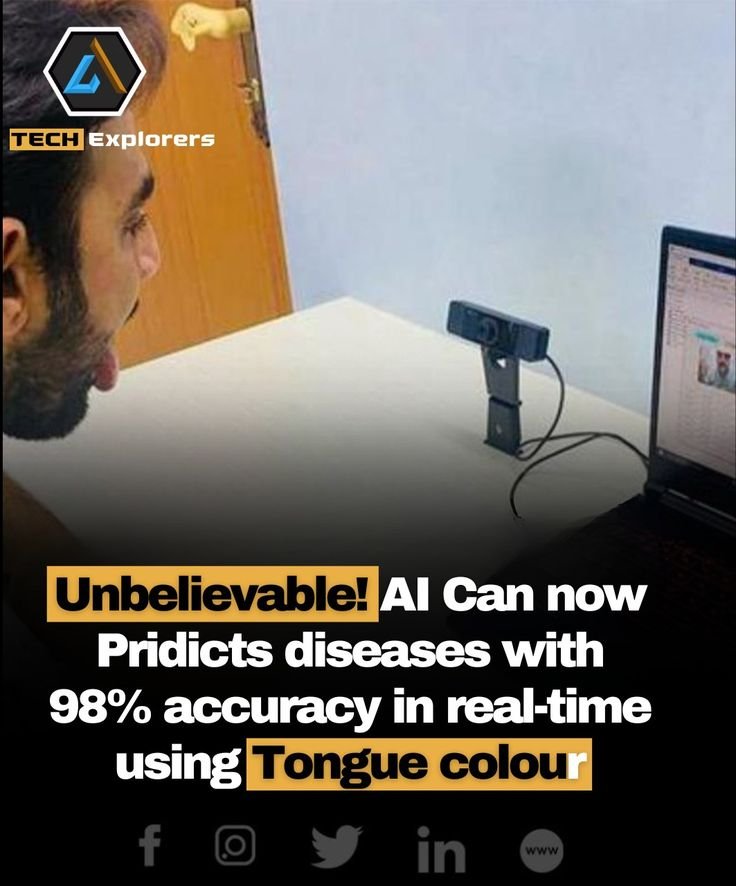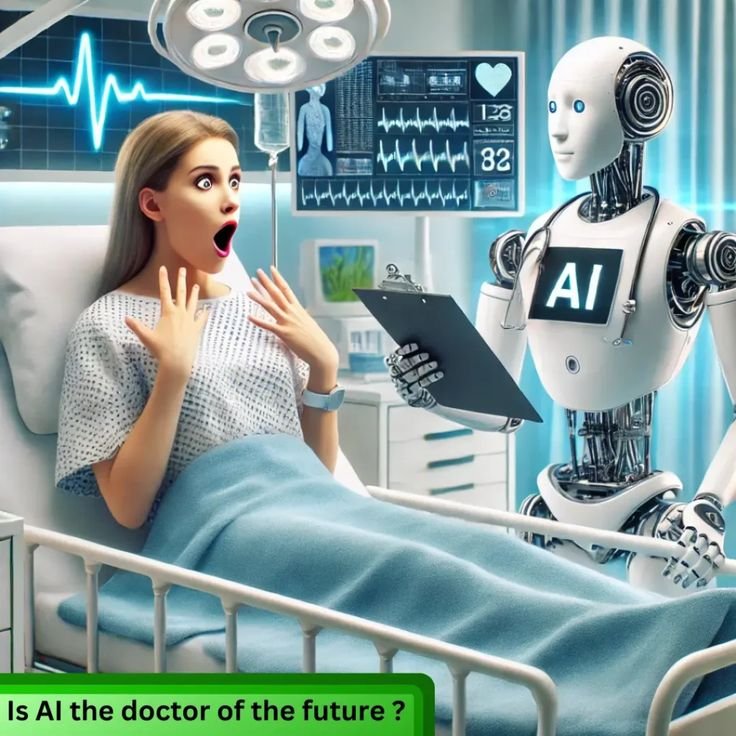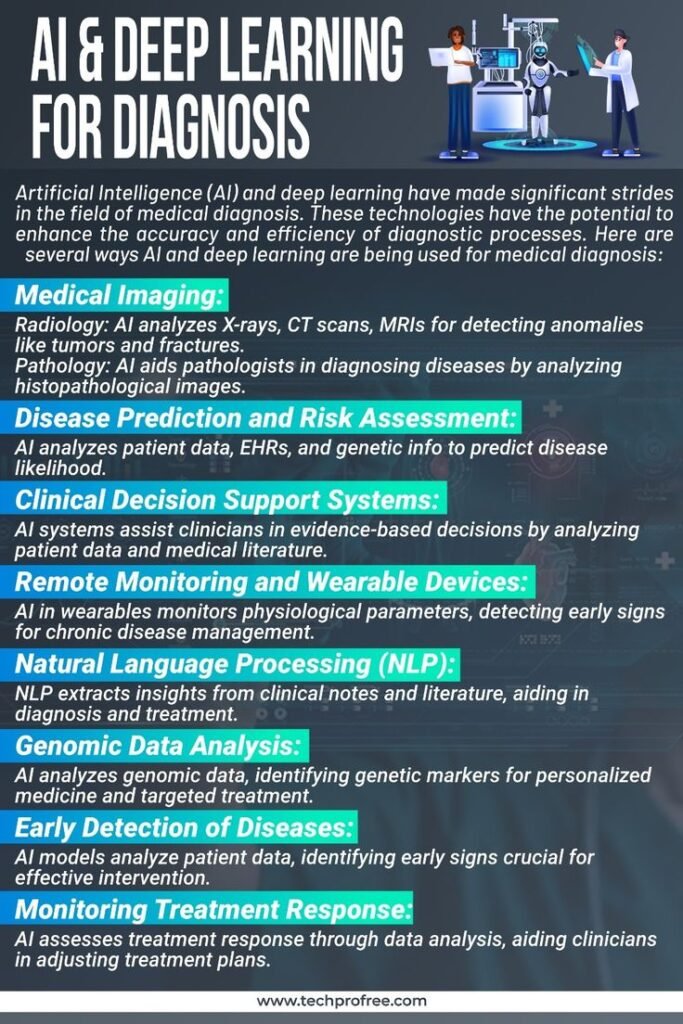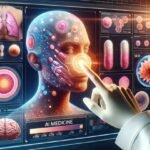Technological innovation is in the hands of those who will treat the diseases that are coming to the forefront of medicine. As healthcare challenges become increasingly complex, artificial intelligence emerges as a groundbreaking solution to one of the most pressing questions: Can AI diagnose diseases?

Throughout the past few years, the medical diagnostic landscape has been a real game changer at this time. While traditional diagnostic methods are necessary but constrained, AI promises their abolition. The addition of artificial intelligence off the bat, with its ability to process vast amounts of medical data in milliseconds with the years of training and expertise a human medical professional has, has the ability to augment the human medical professional.
The Science Behind AI Diagnostics and understanding Can AI diagnose diseases?
Looking at AI’s Diagnostic Capabilities
Medical diagnosis using artificial intelligence is not about replacing the human doctor, but improving what they can do. It’s about the core of this technological revolution – machine learning algorithms and deep learning neural networks. These sophisticated systems can:
- Analyze millions of medical records simultaneously
- Identify subtle patterns invisible to human observers
- Process complex medical imaging with unprecedented accuracy
- Provide nuanced diagnostic insights across multiple medical disciplines
Can AI diagnose diseases? Key Diagnostic Domains
- Radiology
However, medical imaging understanding has been proven quite adept at using AI. Artificial intelligence is disrupting how we see by making it easier to detect early-stage lung cancer, locate microscopic problems on brain scans, and much more. - Dermatology
Skin condition analysis has become significantly more precise. AI algorithms can now:
- Classify skin lesions with remarkable accuracy
- Identify potential melanoma risks
- Provide detailed skin condition assessments
- Neurological Diagnostics
The complexity of neurological disorders finds a powerful ally in AI technology. Advanced algorithms Can AI diagnose diseases?
- teach early signs of Alzheimer’s disease
- Track Parkinson’s disease progression
- Analyze intricate brain imaging patterns
Advantages of AI-Driven Diagnosis
Precision and Efficiency

The main benefit of AI in medical diagnostics is its unmatched accuracy. Unlike human diagnosticians, AI systems:
- Eliminate fatigue-related errors
- Provide consistent analytical approaches
- Process multiple data points simultaneously
- Offer objective, data-driven insights
Economic and Accessibility Benefits
Can AI diagnose diseases? indirectly AI-driven diagnostics promise to democratize healthcare by:
- Reducing overall diagnostic costs
- Enabling 24/7 medical assessments
- Providing access to advanced diagnostics in remote areas
- Accelerating treatment decision-making processes
Challenges and Limitations
Technical and Ethical Considerations
Despite its potential, AI diagnostics face significant challenges:
- Data Privacy Concerns
The sensitive nature of medical data requires robust protection mechanisms. Ensuring patient confidentiality while leveraging AI’s diagnostic capabilities remains a critical challenge. - Algorithmic Limitations
AI systems are not infallible. They may struggle with:
- Understanding complex contextual nuances
- Handling rare or unique medical cases
- Providing the emotional support inherent in human interactions
Ethical Dilemmas
There are significant ethical concerns with the use of AI in healthcare.
- Who is responsible for AI diagnostic errors?
- How do we maintain the human touch in medical care?
- Can AI truly understand the holistic nature of patient health?
Real-World Implementation
Leading Innovations
Several pioneering organizations are at the forefront of AI diagnostic technologies:
- Google DeepMind
Developing advanced medical imaging solutions with unprecedented accuracy in cancer detection and medical analysis. - IBM Watson Health
Creating comprehensive diagnostic platforms that integrate vast medical knowledge with cutting-edge AI capabilities.
The Future of AI in Medical Diagnostics

Emerging Trends
The future promises exciting developments:
- Personalized medicine tailored to individual genetic profiles
- Continuous health monitoring through wearable AI-powered devices
- Predictive healthcare strategies that prevent diseases before they manifest
Conclusion: A Collaborative Future
Can AI diagnose diseases? And what does that mean? Not artificial intelligence replacing human medical expertise, but instead artificial intelligence boosting the power of human medical expertise. One path forward will realize the computational power of AI coupled with the empathy and advanced reasoning of humans.
Key Takeaways
- AI can diagnose diseases with remarkable accuracy
- Technological limitations still exist
- Human oversight remains crucial
- Continuous improvement is ongoing
Frequently Asked Questions
Q1: Can AI completely replace human doctors?
No. AI is a supportive tool that enhances diagnostic capabilities, not a complete replacement for human medical professionals.
Q2: How accurate are AI diagnostic tools?
Accuracy varies by specialization, with some areas showing up to 95% accuracy in specific diagnostic tasks.
Q3: Are AI diagnostic tools safe?
AI diagnostic tools undergo rigorous testing and validation processes when properly developed and regulated.




Pingback: How Generative AI is Transform Pharmaceutical Marketing in 2024 - glotarhub.com
Pingback: Revolutionary AI in Mental Health Diagnosis report 2024 - glotarhub.com